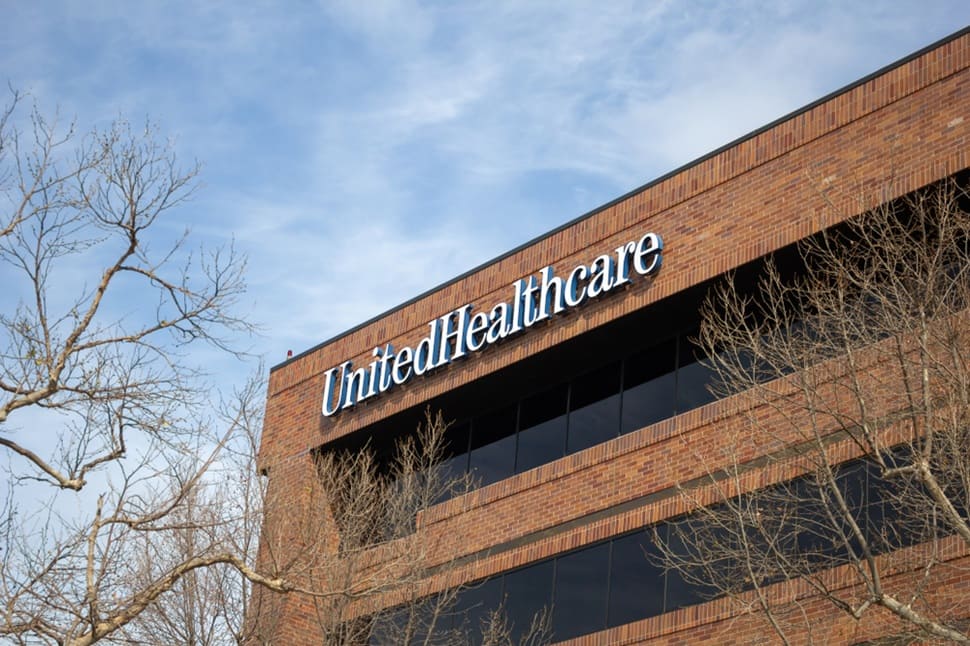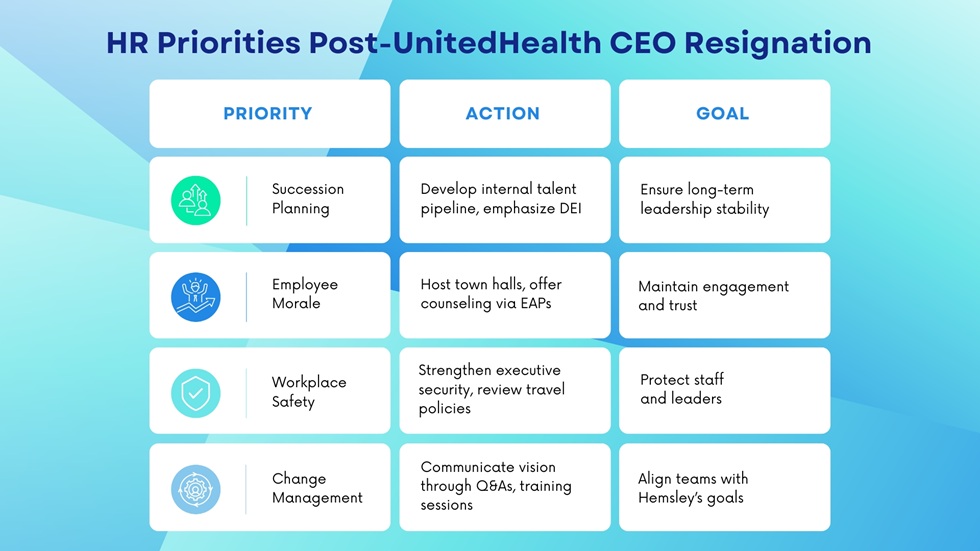On May 13, 2025, UnitedHealth Group announced a seismic leadership change: CEO Andrew Witty resigns for “personal reasons,” and former CEO Stephen Hemsley returns to lead the healthcare giant. The current UnitedHealth CEO shakeup, coupled with the decision to suspend the 2025 Annual Forecast, sent shares plummeting over 15%, erasing billions in market value. Questions arise as UnitedHealth wades through a turbulent year marked by a historic cyberattack, soaring medical costs, and public backlash following the murder of UnitedHealthcare CEO Brian Thompson. These critical questions remain unanswered regarding leadership stability, employee morale, and the company’s future.
Why did Andrew Witty resign?
Andrew Witty’s resignation, announced abruptly, stunned investors and employees. UnitedHealth stated that Witty stepped down for “personal reasons,” but the lack of elaboration has fueled speculation. Was it truly personal, or a response to mounting pressures?

UnitedHealth new CEO 2025: Hemsley returns as Witty resigns. HR navigates leadership turmoil, morale, and succession.
Witty, who took the helm in 2021 after leading GlaxoSmithKline, steered UnitedHealth through a challenging period. During his tenue, the giant saw a 60.5% stock surge and revenue growth to $400 billion, but recent setbacks paint a different narrative. A February 2024 cyberattack on Change Healthcare compromised 190 million people’s data, disrupting healthcare payments nationwide. In December 2024, the murder of UnitedHealthcare CEO Brian Thompson outside a New York hotel sparked public outrage over denied claims and rising costs. It came as a surprise when Witty acknowledged the “flawed” U.S. health system in a New York Times op-ed. In addition, a Justice Department investigation into Medicare billing practices and a first-quarterly-earnings miss since 2008 lead to intense scrutiny about Witty’s leadership.
Some analysts suggest the “constant fear” for Witty’s and his family’s safety post-Thompson’s killing may have led to the resignation. Others hint at a potential “pushout” due to investor dissatisfaction with financial performance. Without concrete evidence, we cannot confirm these theories, however the timing of UnitedHealth CEO’s resignation suggests a confluence of personal and professional pressures.
Key Takeaways:
- Andrew Witty personal reasons: No specific details provided, but context points to safety concerns, financial setbacks, or board pressure.
- Impact: The UnitedHealth CEO resignation signals instability, potentially affecting employee confidence and investor sentiment.
Stephen Hemsley returns: A familiar face to steady the ship
With Andrew Witty replaced, Stephen Hemsley returns as UnitedHealth’s CEO, effective immediately, while retaining his role as board chairman. Hemsley, 72, led UnitedHealth from 2006 to 2017, transforming it into a $400 billion conglomerate with UnitedHealthcare and Optum. His return is seen as a stabilizing move, but is it a long-term solution or a stopgap?
Hemsley’s track record is impressive. He spearheaded the creation of Optum, now a powerhouse in pharmacy benefits and healthcare services, and navigated UnitedHealth through the 2008 financial crisis. On a May 13 investor call, Hemsley expressed “deep disappointment” in recent setbacks but emphasized that “many issues are within our control,” signaling a focus on cost management and strategic pricing for Medicare Advantage plans. He also reaffirmed UnitedHealth’s commitment to value-based care, aiming for a 13-16% long-term growth target by 2026.
However, critics like James Harlow of Novare Capital Management call Hemsley’s appointment a “stopgap,” noting the lack of a clear succession plan. At 72, Hemsley may serve as a transitional leader while UnitedHealth searches for a permanent UnitedHealth CEO replacement. HR’s role in this UnitedHealth leadership change is critical, from managing the transition to rebuilding trust among 400,000 employees.
Key Takeaways:
- Stephen Hemsley returns: Brings experience but raises questions about long-term succession.
- HR Challenge: Ensure smooth leadership integration and transparent communication.
UnitedHealth suspends financial guidance: What’s behind the move?
The decision to UnitedHealth suspends financial guidance for 2025 sent shockwaves through Wall Street, with shares dropping nearly 18% to a four-year low. More concerning was the news that “UnitedHealth withdraws 2025 outlook” due to “higher-than-expected medical costs,” particularly in its Medicare Advantage business, which serves over 8 million seniors. But what does this mean for stakeholders?
The company cited “accelerated care activity” and elevated costs for new Medicare Advantage members as key drivers. This follows an April 2025 earnings miss when UnitedHealth slashed its profit forecast from $29.50-$30 to $26-$26.50 per share. Rising demand for procedures like hip replacements, delayed during the COVID-19 pandemic, has strained insurers industry-wide, with Humana and CVS Health also reporting cost pressures.
For employees, the UnitedHealth annual forecast suspended signals uncertainty. Will cost-cutting measures, like layoffs or benefit reductions, follow? HR must communicate proactively to maintain morale. For consumers, higher costs could translate to pricier premiums or stricter claim policies, further fueling public frustration with insurers.
Key Takeaways:
- UnitedHealth suspends financial guidance: Driven by Medicare Advantage cost overruns.
- Stakeholder Impact: Employees face uncertainty; consumers may see higher costs.
UnitedHealth leadership turmoil from an HR’s standpoint
The UnitedHealth CEO shakeup is a significant HR challenge. With Andrew Witty’s resignation, HR must address succession planning, employee morale, and workplace culture amid UnitedHealth leadership turmoil. Here’s how:
- Succession Planning: Hemsley’s swift appointment suggests a fallback to a known leader, but the lack of a new candidate raises questions about UnitedHealth’s leadership pipeline. HR should prioritize grooming diverse, internal talent for future roles, aligning with DEI goals.
- Employee Morale: The cyberattack, Thompson’s murder, and now Witty’s exit have likely shaken employee confidence. HR can deploy town halls, mental health resources, and transparent updates to rebuild trust.
- Workplace Safety: Thompson’s killing highlighted executive safety risks. HR must enhance security protocols, from travel policies to threat assessments, to protect leaders and staff.
- Change Management: Communicating Hemsley’s vision clearly is key. HR should facilitate Q&A sessions and training to align teams with new priorities.

UnitedHealth’s challenges reflect broader healthcare industry trends. Rising medical costs, driven by an aging population and post-COVID care demand, are squeezing insurers. The Justice Department’s probe into UnitedHealth’s Medicare billing practices mirrors scrutiny on industry giants like Humana. Meanwhile, public anger over denied claims, amplified by Thompson’s murder, has put insurers under a microscope.
Hemsley’s return may restore investor confidence, but rebuilding public trust is tougher. Witty’s op-ed acknowledged systemic flaws, yet UnitedHealth’s size makes it a lightning rod for criticism. HR can play a role by championing patient-centric initiatives, like transparent claim processes, to soften public perception.
What’s Next for UnitedHealth?
As Stephen Hemsley returns, UnitedHealth faces a pivotal moment. Can it regain its 13-16% growth trajectory by 2026? Will HR stabilize the workforce and prepare for a permanent CEO? The UnitedHealth CEO replacement process will be closely watched, as will efforts to address cost pressures and public backlash.
For employees, the focus is on trust and stability. As for consumers, it’s about affordability and access. For investors, it’s about profitability. Hemsley’s challenge is balancing these demands while steering UnitedHealth through a storm.
Stay informed on UnitedHealth’s journey. Subscribe to The HR Digest for HR news and industry updates.





